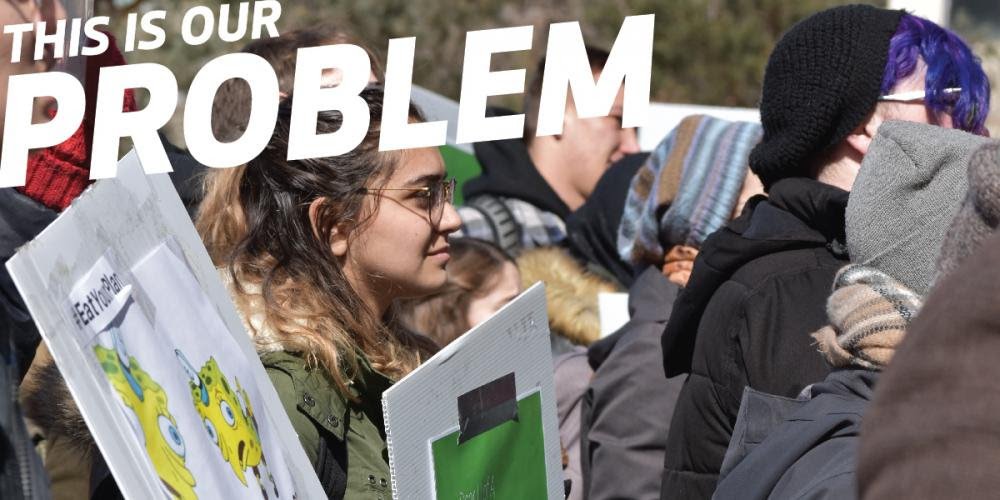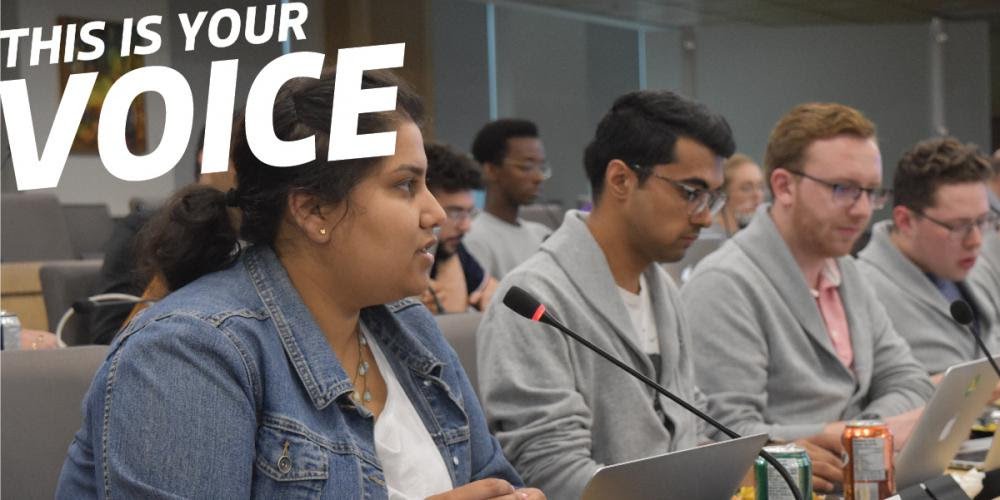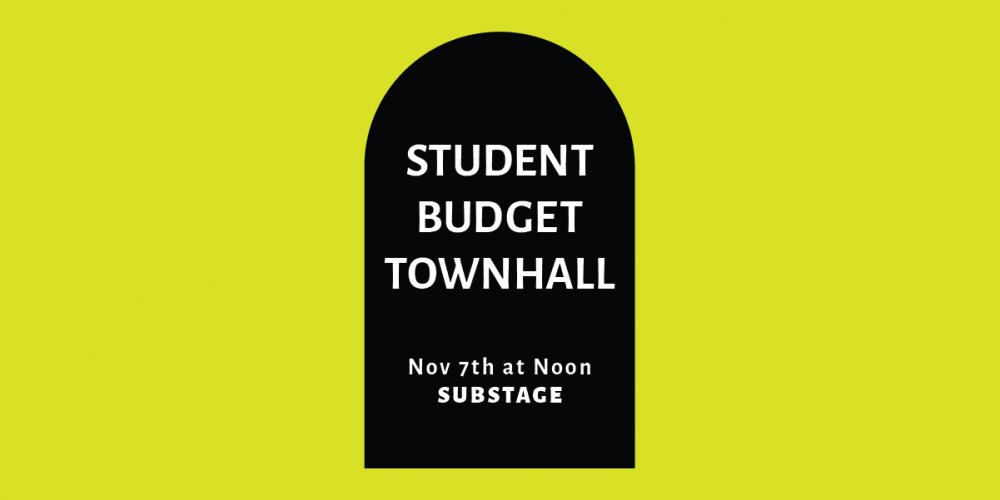This content was sent out as a newsletter to undergraduate students at the University of Alberta on November 1, 2019, titled: "Special Edition - The budget is pretty spooky."

What the provincial budget means for you, and what you can do about it.
As students, the provincial budget released on October 24 will impact all of us.
This budget will affect the amount you pay in tuition, the amount that you pay in taxes each year, how easily you’ll be able to pay off your student loans—and in many other ways that are important to be aware of.
While what you will pay depends a lot on your program, we know that a first-year Arts student should expect extra costs of at least $7,200. And that's assuming a full-time courseload and completion in 4 years. For many students this cost will be higher.
But it is possible to do something about this budget. We've successfully advocated on behalf of students before, and we can do it again. We need your help to do this.
Programs are being impacted by the budget.
The Campus Alberta Grant, which saw a 5.1% cut overall across the province ($117.6 million) has been cut by 6.9% ($44.4 million) at the University of Alberta. This grant supports the programs that are offered at publicly funded institutions, like ours. This means that there is less funding for programs, and the University will have to make decisions about how this reduced funding is to be allocated.
What this means for you: Programs will be cut or changed. Future post-secondary students (or students trying to transfer into certain programs) might not have access to the programs that are available today, including more specialized degrees.
More reliance on tuition revenues.
The tuition cap we advocated for last year, and was implemented, has been suspended in this budget—institutions can charge up to 7% more in tuition each year, over the next 3 academic years (in some cases institutions can go beyond this 7% in a single year for certain programs).
What this means for you: Your education is about to get more expensive.
You’re paying more in taxes.
In the 2020 tax year, post-secondary tuition and education tax credits have been eliminated. This means that for your classes starting Winter 2020 onwards, you don’t get to apply those credits on your taxes.
What this means for you: You’ll probably owe more on your taxes, because they aren’t being subsidized by your education credits anymore.
It might be tougher for you to find a summer job.
Since being reintroduced in 2016, more than 12,000 students found temporary summer work through STEP, a program that provided eligible employers like small businesses, non-profits, and universities with a subsidy to help fund full-time summer employment for students. For many employers, the STEP program was the reason they were able to hire students.
What this means for you: Fewer organizations will have the funding available to bring you on as a student employee. This means fewer jobs will be available to provide you with work experience for your future career, and you will probably be making less money to pay for your tuition.
Student Aid funding is projected to decrease.
Student Aid wasn’t mentioned much in the budget, but a decrease of nearly 10% is projected in Student Aid spending, from $235 million (2019-2020) to $210 million (2020-2021).
What this means for you: While students that qualify for low-income bursaries, academically gifted students, and students who can comfortably afford increasing tuition costs will be able to attend post-secondary, we realize that a majority of students fall somewhere in the middle, and would not be supported—especially since approximately 3 out of 5 full-time Alberta students depend on student loans.
With that said, the UASU offers the Access Fund, emergency funding to students who don’t have access to sufficient funding, and UASU awards, which provides support for students beyond academic achievements or needs-based circumstances. We also provide support through the Peer Support Centre and Campus Food Bank. Use these resources when you need to.
It will be more difficult to pay off your student loans.
As of March 1, 2020, the government will raise the interest rate on student loans (CIBC prime rate to prime plus 1%).
What this means for you: A total loan amount of $30,000 (the average amount for Alberta students that take out loans), amortized over a standard 10-year repayment period, would increase by $15 per month, or about $1800 over the entire course of your repayment.
Failing infrastructure on campus now to receive $0.
The Infrastructure Maintenance Program, grant funding from the province to address "deferred" maintenance on campuses, will not disburse the $35 million that had been set aside for the University of Alberta.
No, this isn’t money to build new buildings. There are urgent repairs needed—to address things like heating and power loss in buildings, or leaking pipes. "Deferred" maintenance means it’s being deferred to a later date—when it’s more expensive to fix.
What this means for you: there are need-to-haves that have to be addressed, which the province is not paying for. This most likely means that alternative funding sources might need to be looked at (which could come directly out of student pockets).

What we’ve done so far.
Representing student voices to all levels of government (and the University of Alberta) is one of the most important things the UASU does on behalf of students—it ensures that decisions about us happen while our voices are represented in the room, making sure that what we want and value is actually being represented.
To do this, we work with partners like the Canadian Alliance of Student Associations and the Council of Alberta University Students, and regularly meeting with Ministers, MPs and MLAs. To be honest, we get shit done:
- In 2015, the UASU advocated to bring a fall reading week to the University of Alberta campus to improve student health and well-being—giving students a break to visit with family, or take a much-needed mental break from the stresses of academic life.
- In 2017, we worked with our partners and the Government of Alberta to have funding address post-secondary student mental health.
- In early 2018, the UASU advocated against steep proposed increases to meal plan costs that would have made it unaffordable for many students to live comfortably on campus.
- In October 2018, we worked with our partners to put a cap on domestic tuition increases, make international tuition more predictable and prevent new mandatory non-instructional fees from being implemented without student approval. This budget eliminated the tuition cap that had been put in place.
Last week, we responded to the budget on CityNews, and in The Star, Edmonton Journal, and The Gateway, ensuring the student perspective is being heard.
What is your UASU doing about it now?
To be honest, we need your support. We know these changes aren’t ideal, but there are many different ways we can respond to the problem we’re facing. We want to work together to create the best solution for students. To do this, we need to hear from you. We want to hear directly from you at our Town Hall, Thursday, November 7 at Noon on the SUBstage.
So, join us at the Town Hall—hosted by President, Akanksha Bhatnagar and the UASU Executive—and tell us what you think about the budget and how it will impact you.

What can you do about it today?
- Tell us about your concerns, and how this budget will impact you. Talk to executives, attend the next Students’ Council meeting, send us an email, send us a facebook message, tag us on Twitter and Instagram with your thoughts. Our goal is to represent you to the best of our ability, and you need to tell us how to do that. (To those who have already contacted us, thank you. We hear you.)
- You can also work with your Faculty or Student Group, and reach out to work with other Faculties, Student Groups, or even staff associations.
- You can always write a letter directly to your MLA.


